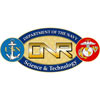| Follow the official expedition blog Follow Earle Wilson's blog (which describes his video shown at right) Ship-based hydrography remains the only method for obtaining high-quality, high spatial and vertical resolution measurements of a suite of physical, chemical, and biological parameters over the full water column. Ship-based hydrography is essential for documenting ocean changes, especially for the deep ocean below 2 km. |
 |
The R/V Roger Revelle is embarked on the U.S. GO-SHIP 2016 I08S Expedition, an international effort to employ ship-based hydrographic observations to understand the dynamics, the interaction, and the predictability of the coupled ocean-atmosphere system. These measurements facilitate observations, analysis and predictions of changes in the Earth’s climate system, enabling better understanding of climate variability and dynamics, predictability, and change, to the benefit of society and the environment in which we live.
Global hydrographic surveys have been carried out approximately every decade since the 1970s through research programs such as GEOSECS, TTO/SAVE, WOCE / JGOFS, and CLIVAR. The U.S. GO-SHIP 2016 I08S Expedition follows in the footsteps of these earlier efforts by re-occupying sampling stations that extend from the Antarctic ice edge in the southern Indian Ocean, northward across the equator into the Bay of Bengal.
The objective of repeat hydrography missions such as this is to maintain decadal time-scale sampling of ocean transports and inventories of climatically significant parameters, such as carbon system components, nutrients, freshwater and heat over the entire water column.
Earlier programs like WOCE and JGOFS provided a full depth baseline data set that can be used, along with other data, for detection of future changes, and showed where atmospheric constituents are entering the oceans. The repeat hydrographic measurements reveal much about the stability of internal pathways and changing patterns in ocean properties. They continue to serve as a baseline to assess changes in the ocean's biogeochemical cycle in response to natural and/or anthropogenic activity. Long-term measurements are used to follow global warming-induced changes in the ocean's transport of heat and freshwater, which could affect the circulation by altering thermohaline overturning.
While autonomous sampling programs such as Argo and the basin-scale volunteer observing ship programs can sample some of the climate-relevant data from the upper ocean, they cannot sample the entire water column nor can they sample the important chemical tracer constituents. Autonomous programs also cannot provide calibrated data -- the sensors they use are subject to drift and require regular verification by in situ measurements.
Repeat hydrography missions such as the U.S. GO-SHIP 2016 I08S Expedition result in important benefits to society. This mission is providing broad and nearly immediate dissemination of data that is used worldwide to enhance our understanding of ocean processes that profoundly influence global ecosystems and climate. High-quality, repeatable, accurate observations made repeatedly through time enable us to truly understand whether and how these important global processes are changing through time.

Research vessel operations at Scripps Institution of Oceanography are supported by the National Science Foundation (Awards 1119644, 1212770, 1227624, and 1321002).

R/V Roger Revelle is operated by Scripps Institution of Oceanography under a charter agreement with the Office of Naval Research. Roger Revelle is one of six major oceanographic research vessels owned by the U.S. Navy and operated within the University-National Oceanographic Laboratory System as shared-use research facilites.
Related Video: Earle Wilson's video of Southern Ocean storm
- R/V Sally Ride
-
R/V Roger Revelle
-
Handbook
- Section 1: Welcome Aboard
- Section 2: Specifications
- Section 3: Vessel Layout Description
- Section 4: Ship's and Scientific Equipment Description
- Section 5: Technical Services and Special Equipment
- Section 6: Navigation and Communications Capability
- Section 7: Safety
- Section 8: Ship Organization
- Section 9: Scientific Berthing Plan
- Specifications
- Schematic Drawings
- Berthing Plan
- Scientific Equipment
- Major Shipboard Equipment
-
Handbook
- R/V Robert Gordon Sproul
- R/V Bob and Betty Beyster
- Emerit: R/V Melville
- Emerit: R/V New Horizon
- Emirit: Research Platform FLIP
- Preventing harassment and discrimination
- Alcohol and illegal drugs: Zero tolerance
- Departure & arrival times
- Pregnancy and Lactation at Sea
- Accommodating Disabilities
- Minimum Age At Sea
- Isotope Use on Scripps Ships
- Geophysical survey requirements in California waters
- Export controls and compliance
- Scientific shipments to Scripps vessels
- Ship to Shore Communications
- Internet use policy
- Winch and Wire Regulations
- Ship Usage Rates
- Data and Sample Distribution Policy
- Stable Isotopes on SIO Ships
- Carryforward of Ship Time
- Using non-ARF vessels
- Transportation Worker's Identification Credential (TWIC)
- Naval Clearances
- Notice to mariners
- Volunteering Aboard Scripps Ships
- USCG Rules for Buoys